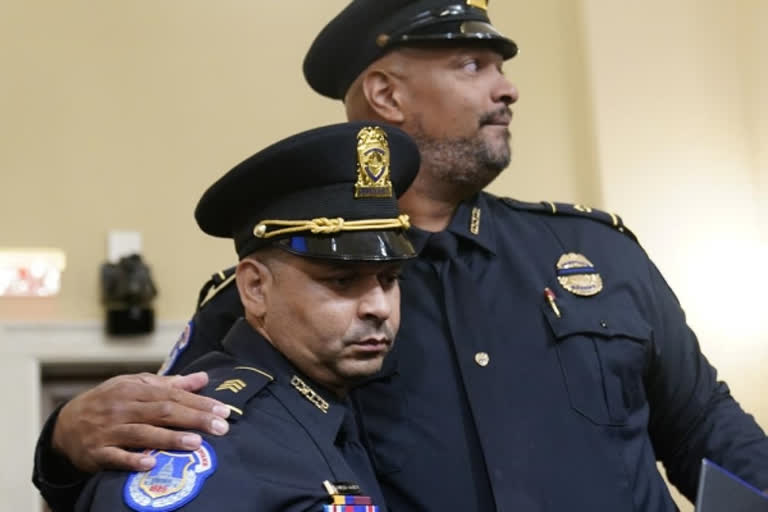Washington:It had only been hinted at in previous public examinations of the Jan. 6 Capitol insurrection: Scores of rioters attacked police officers not just with makeshift weapons, stun guns and fists, but with racist slurs and accusations of treason.
Four officers, two from the U.S. Capitol Police and two from the D.C.’s Metropolitan Police Department, on Tuesday detailed the racism and bigotry they encountered during the violent assault on the Capitol. Their direct, harrowing accounts laid out the hours when the pro-police sentiment of Trump’s supporters was pushed aside, consumed by the fury of wanting to keep him in the White House.
Capitol Police Officer Harry Dunn told lawmakers about an exchange he had with rioters, who disputed that President Joe Biden defeated former President Donald Trump in the last presidential election. When Dunn, who is Black, argued with the rioters that he voted for Biden and that his vote should be counted, a crowd began hurling the N-word at him.
“One woman in a pink ‘MAGA’ (Make American Great Again) shirt yelled, ‘You hear that, guys, this n——— voted for Joe Biden!’” said Dunn, who has served more than a dozen years on the Capitol Police force. “Then the crowd, perhaps around 20 people, joined in, screaming “Boo! F——— n—— !” he testified. He said no one had ever called him the N-word while he was in uniform. That night, he sat in the Capitol Rotunda and wept.
Read:US House approves select panel to probe Jan 6 Capitol Hill unrest
Ahead of Tuesday’s hearing, House Intelligence Committee Chairman Adam Schiff, a member of the panel, said the Capitol and D.C. officers would provide insight into “what it was like to be on the front lines.” However, Dunn was also speaking to the experience of being an African-American police officer, who make up 29% of roughly 2,300 officers and civilians serving on the Capitol Police force.
Dunn said another Black male officer told him that, while confronting the rioters on Jan. 6, he was told to “Put your gun down and we’ll show you what kind of n—— you really are!” The panel’s chairman, Democratic Rep. Bennie Thompson of Mississippi, pressed Dunn further about how he felt being an African-American officer facing down racists and enduring racial slurs in the halls of democracy.
“It’s just so disheartening that people like that will attack you just for the color of your skin,” Dunn replied. “Once I was able to process it, it hurt. My blood is red. I’m an American citizen. I’m a police officer. I’m a peace officer.”
While Black Americans make up roughly 13% of the U.S. population, they were roughly 11% of all police officers in 2016 across a sampling of 18,000 local law enforcement agencies in the U.S., according to the U.S. Bureau of Justice Statistics. Over 71% of officers were white in 2016.
It’s this kind of treatment endured by Black men and women in law enforcement that policing experts say makes recruitment and diversity among U.S. police forces challenging. The law enforcement profession has also struggled with its origins in America, dating back to the slave patrols in the early 1700s formed to capture people who escaped slavery and terrorize the enslaved into submission. Although many African-Americans have served valiantly on local and federal police forces since the Civil Rights movement, data shows Black Americans are still arrested in disproportionate numbers and more likely to be fatally shot by police.
Another Capitol Police officer, Sgt. Aquilino Gonell, wiped away tears as he recalled the story of his immigration to the U.S. from the Dominican Republic, only to face fellow Americans who considered him a traitor for defending the Capitol on Jan. 6.
